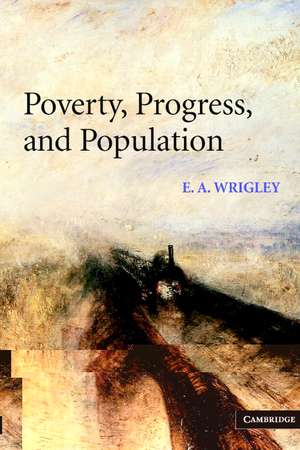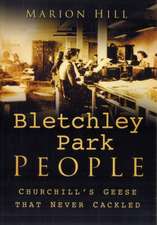Poverty, Progress, and Population
Autor E. A. Wrigleyen Limba Engleză Paperback – 21 ian 2004
| Toate formatele și edițiile | Preț | Express |
|---|---|---|
| Paperback (1) | 282.54 lei 43-57 zile | |
| Cambridge University Press – 21 ian 2004 | 282.54 lei 43-57 zile | |
| Hardback (1) | 877.57 lei 43-57 zile | |
| Cambridge University Press – 21 ian 2004 | 877.57 lei 43-57 zile |
Preț: 282.54 lei
Nou
Puncte Express: 424
Preț estimativ în valută:
54.06€ • 56.60$ • 44.73£
54.06€ • 56.60$ • 44.73£
Carte tipărită la comandă
Livrare economică 07-21 aprilie
Preluare comenzi: 021 569.72.76
Specificații
ISBN-13: 9780521529747
ISBN-10: 0521529743
Pagini: 478
Ilustrații: 49 tables
Dimensiuni: 152 x 229 x 27 mm
Greutate: 0.75 kg
Ediția:Revised 2007
Editura: Cambridge University Press
Colecția Cambridge University Press
Locul publicării:Cambridge, United Kingdom
ISBN-10: 0521529743
Pagini: 478
Ilustrații: 49 tables
Dimensiuni: 152 x 229 x 27 mm
Greutate: 0.75 kg
Ediția:Revised 2007
Editura: Cambridge University Press
Colecția Cambridge University Press
Locul publicării:Cambridge, United Kingdom
Cuprins
Introduction: 1. In search of the industrial revolution; Part I. The Wellsprings of Growth: 2. The divergence of England: the growth of the English economy in the seventeenth and eighteenth centuries; 3. Reflections on the history of energy supply, living standards and economic growth; 4. Two kinds of capitalism, two kinds of growth; 5. Men on the land and men in the countryside: employment in agriculture in early nineteenth-century England; 6. Corn and crisis: Malthus on the high price of provisions; 7. Why poverty was inevitable in traditional societies; 8. Malthus on the prospects for the labouring poor; 9. The occupational structure of England in the nineteenth century; Part II. Town and Country: 10. City and country in the past: a sharp divide or a continuum?; 11. 'The great commerce of every civilised society': urban growth in early modern Europe; 12. Country and town: the primary, secondary and tertiary peopling of England in the early modern period; 13. Brake or accelerator? Urban growth and population growth before the industrial revolution; Part III. The Numbers Game: 14. How reliable is our knowledge of the demographic characteristics of the English population in the early modern period?; 15. Explaining the rise in marital fertility in the 'long' eighteenth century; 16. No death without birth: the implications of English mortality in the early modern period; 17. Demographic retrospective; Bibliography.
Recenzii
'Wrigley's reinterpretation of the eighteenth century is of vital importance for anyone wanting to understand how economic ideas were evolving in the period from the English civiil War to the Victorian age.' The Times Higher Education Supplement
'The book is well written and covers a broad range of interesting topics.' Journal of Peace Research
'The book is well written and covers a broad range of interesting topics.' Journal of Peace Research
Notă biografică
Descriere
Definitive account of England's transformation through industrial revolution, from one of the nation's leading historians.













